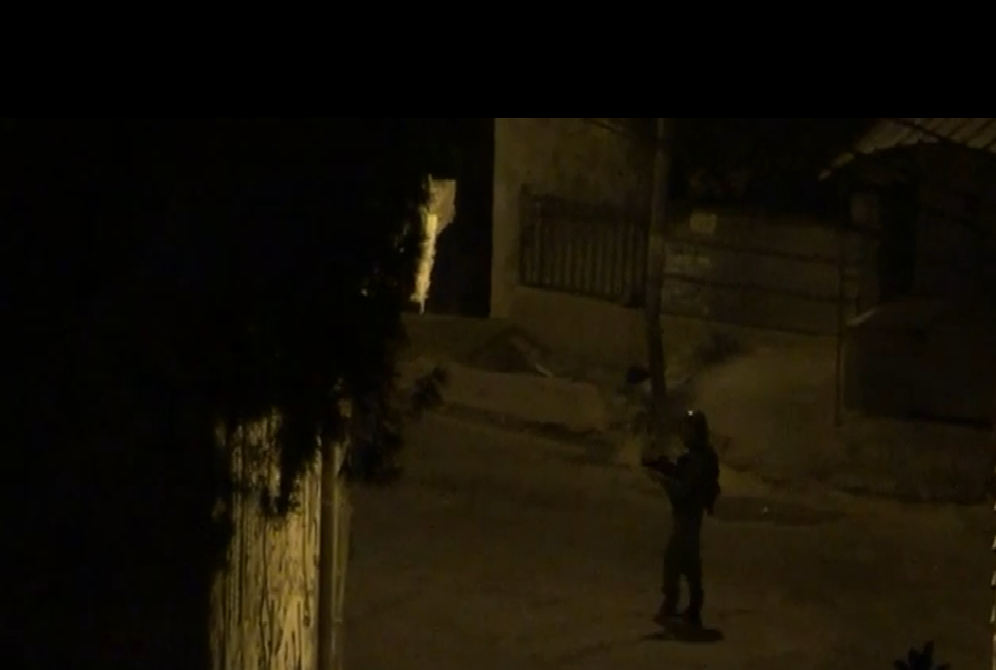Year: 2013
-
Israeli occupation forces demolish an entire Bedouin community in Beit Hanina
22nd August 2013 | International Solidarity Movement, Ramallah Team | Beit Hanina, Occupied Palestine On the morning of the19th August, two hundred soldiers in thirty-eight jeeps and with two military dogs dismantled several tents housing the Tal ‘Adasa Bedouin community in the Jerusalem neighborhood of Beit Hanina. At around 6am, Israeli soldiers surrounded the Bedouins tents,…
-
Video: Settlers and soldiers storm Joseph’s tomb in Balata
21th August 2013 | International Solidarity Movement, Nablus Team | Balata Refugee Camp, Occupied Palestine Last night, hundreds of settlers accompanied by Israeli forces invaded Balata refugee camp in Nablus to pray at Joseph’s Tomb. Israeli soldiers shot tear gas canisters and sound bombs at residents who protested the incursion – three youths were reportedly…
-
Israeli forces use excessive lethal force killing Palestinian civilian and wounding 3 others, including 2 children, in Jenin
20th August 2013 | Palestinian Centre for Human Rights | Jenin, Occupied Palestine In an excessive use of lethal force, on Tuesday morning, 20 August 2013, Israeli occupation forces killed a Palestinian civilian and wounded 3 others, including 2 children, in Jenin refugee camp in the northern West Bank. According to investigations conducted by the…

